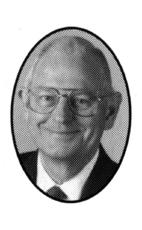Mr. Speaker, I welcome the opportunity to participate in second reading of Bill C-295. As members are well aware, the government has already stated its opposition to this bill in no uncertain terms. Today I will restate the government's main objections and explain why the bill must not become law.
Canada's support for peacekeeping is a reflection of our strong commitment to international peace and security. Our impressive record in this field is recognized worldwide. We have long argued our experience and skills are unmatched. As proof of our expertise Canada is currently at the forefront of efforts to improve the conduct of the United Nations' peacekeeping operations. We take pride in our peacekeeping reputation and we work hard to preserve it.
Unfortunately Bill C-295 if it were to pass into law would do irreparable damage to this reputation. This is a flawed, contradictory piece of legislation that would seriously undermine Canadian efforts to contribute effectively to peacekeeping operations.
The bill goes beyond consultation and seeks explicit control by Parliament of all peacekeeping activities. This would set a very dangerous precedent, for Bill C-295 would restrict the prerogative and discretion of the governor in council to determine Canada's contribution to UN or regional operations.
Under section 4 of the National Defence Act the Minister of National Defence has responsibility for the management and direction of the Canadian forces and of all matters relating to national defence including peacekeeping. The bill would remove this responsibility not only from the minister but from the government as a whole respecting military operations.
Perhaps the most serious repercussion of giving Parliament direct control over peacekeeping operations relates to the speed with which events unfold in the post-cold war world. The bill which calls for a five-hour debate prior to any mission involving more than 100 Canadian forces members would add another layer to the decision making process. As a result it would limit Canada's ability to respond quickly to UN peacekeeping requests or to changes in the actual peacekeeping mandate.
The need for quick deployment in peacekeeping operations cannot be overstated. We have heard again and again how a more rapid response by the international community might have saved tens of thousands of lives in Rwanda.
Bill C-295 if anything would increase reaction time, making it even more difficult to respond to such crisis. The bill would also hamper current efforts by the ministers of national defence and foreign affairs to improve the UN's rapid reaction capability and to find ways Canada might contribute to such a capability.
In short, the bill sends the wrong message to our partners at a time when we are leading the way in promoting new methods to enhance the UN's ability to prevent and resolve conflict.
If Canada is to remain an effective peacekeeper the authority to deploy and operate peacekeeping forces must stay in the hands of the governor in council. The government has the expertise and experience to decide, sometimes on a moment's notice, whether troops should be deployed and how they should operate. Although it welcomes the advice of Parliament, the
government must have the flexibility and some measure of independence to make these decisions.
In effect while Bill C-295 would like to see Canada define its own objectives for specific peacekeeping missions and decide when those objectives are met, it is willing to place Canadian commanding officers under UN or other international command. This is unacceptable. Currently Canadian forces personnel serving on peacekeeping operations are always commanded by a Canadian. While they can be placed under operational control of multinational commanders for specific tasks they are never put under command of the UN or other international organizations. If they were, their assigned tasks would be changed. Their units could be split up and they could be deployed to new areas of operations, all without consent of the Canadian government. This would be unacceptable.
At present all Canadian contingent commanders are directly responsible to the chief of the defence staff for the Canadian contribution to the overall mission and tasks of a peacekeeping force. Bill C-295 would end this practice which would ultimately mean less, not more national control. This does not seem to fit the general intent of the bill which suggests many of these concepts have not been fairly thought out.
Such muddled thinking carries over to the sections of the bill dealing with rules of engagement and the use of force. Subsection 5(3) authorizes the use of deadly force only in self-defence and in defence of civilians threatened with deadly force or else to stop serious human rights abuses.
However, it is important to understand peacekeepers may use force to protect civilians only if it is specifically authorized by a United Nations security council resolution. At the same time, the UN mandate may also require the use of force for reasons other than those specified in subsection 5(3).
In other words, rules of engagement must take into account the specifics of the mandate. They cannot be restricted by legislation that turns a blind eye to such details.
The bill is murky and confusing in other areas. It would amend the National Defence Act so that all members of the Canadian forces assigned to a peacekeeping mission would be on active service for all purposes. However, this proposal is unnecessary because pursuant to Order in Council 1989-583, April 6, 1989, all regular force members anywhere in or beyond Canada and all reserve force members beyond Canada are currently on active service.

